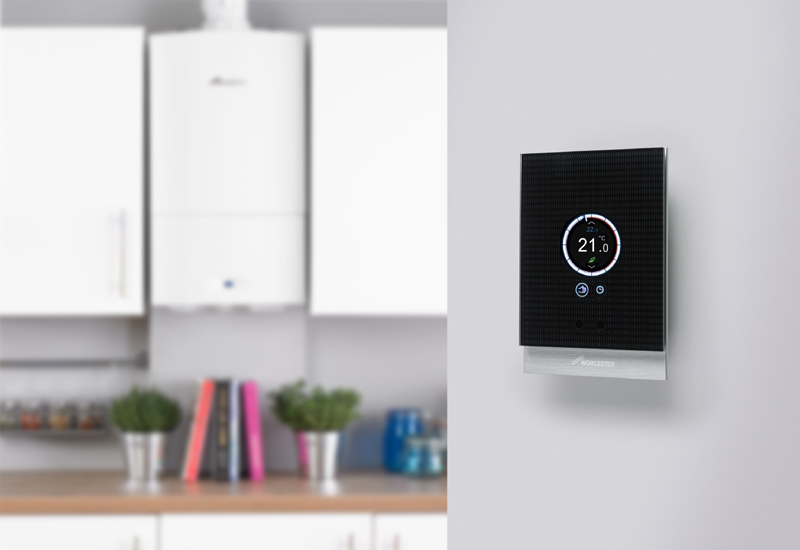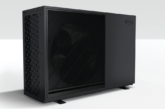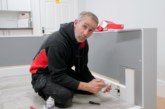
With 2016 drawing to a close, Martyn Bridges, Director of Marketing and Technical Support at Worcester, Bosch Group, shines a light on the future of the plumbing and heating landscape in the housing market.
It is fair to say that the last 12 months have been turbulent for the UK, both economically and politically. By contrast however, the boiler market in this country has remained reassuringly stable and ended September down by a marginal 0.2%. This stability in the market is a particularly positive achievement since it follows the high baseline set in 2015.
In terms of the market in relation to property, going forward we are hopeful that we shall see an increase in boiler sales as Phillip Hammond’s pledge earlier this year of £5 billion for new homes takes effect. The proposed additional 25,000 homes a year as we move towards the end of decade will provide a welcome boost to a relatively flat market.
There may be a concern over whether increased production of homes will have an impact on the quality of the heating systems installed. Reassuringly however, we are seeing heating systems being used by developers as a selling feature. Leveraging the efficiency of a property, alongside the quality of the products used, is particularly popular among regional companies. National developers still tend to be price orientated, positioning the kitchen or bathroom fixtures as the selling point, while the workhorse behind the scenes (the boiler) isn’t highlighted as much as it could be.
The high flyers
While the general market has stayed the same, we can spot some trends within the sector – many of which are likely to continue into 2017 and so should be taken into account by housebuilders. For example, the comparatively favourable price of oil throughout 2016 has caused oil boiler sales to increase. Despite the decision by the Organisation of Petroleum Exporting Countries (OPEC) to decrease production in September, the presence of Iran in the market is likely to result in this buying pattern extending into 2017.
Sales figures of system filters also continue to rise – a particularly impressive statistic when we consider that this market wasn’t even in existence as recently as four years ago. Some manufacturers are strengthening the status of filters by granting ever-popular, extra-long warranties to systems installed with a filter. Such initiatives will make them a key accessory going forward and, based on the results to date, I feel 800,000 would be a reasonable assertion to make in terms of filter sales for 2017.
This year we’ve seen an increase in the popularity of internet enabled controls as homeowners’ interest in connected accessories or relevant to the concept of ‘smart homes’ seems to be growing. National advertising campaigns have certainly helped the technology come to the foreground, but the underlying benefits of being able to control everything from your heating to your washing machine are easy to see, both now and in the future.
With efficiency remaining high on the agenda for many installations, house builders should be prepared to see an influx of technology designed to maximise any energy usage in a system. While they may not be overly present in the market up until now, I foresee flue gas heat recovery also playing some part over the years to come. This technology was initially popular a few years ago and now seems to be tentatively increasing its buoyancy, either as an integrated component within the boiler, or as an accessory added into an existing system.
The underachievers
By contrast, renewable technology is significantly down this year, with both heat pumps and solar thermal feeling the effects of diminished incentives and funding provided by the Government. One instance of this would be the reduction to the solar PV tariff rate in January which saw it drop to less than four pence for every kWh – putting pain to many sales of the technology.
Renewables are undoubtedly the biggest victims of 2016 in terms of the heating and hot water industry, it is in fact the fourth year running we’ve seen green technology lose traction in the market. Having initially slowed and then stalled, sales of renewables are now going backwards and the disbanding of the Department of Energy & Climate Change (DECC) in favour of the Department for Business, Energy & Industrial Strategy (BEIS) is likely to only result in a further decline in the economic viability of installing renewables.
The Brexit effect
Interestingly, any Brexit concerns seem not to have had an impact on sales in general as of yet. However, there is some caution and concern over how we will approach the issue in the New Year by activing article 50 and extricating ourselves of the European community. Many European-owned business – which the majority are – are currently in the process of preparing for its impact.
Indeed, there must be some implication for Brexit when we inevitably announce our departure. The short-term effect is of course exchange rates. Understandably, if manufacturers are having to pay more for the imported components that could well effect the cost of the end product. So, even at its most simple, Brexit is likely to mean prices will rise across the sector.
However, with companies like housebuilders Persimmon, the biggest company in the sector, reporting a rise in profits it seems as though the UK vote to leave the EU has not put off potential homebuyers meaning 2017 could well yet prove a strong year for the market.
Lean on the legislation
Looking ahead to 2017 specifically, there is various legislation on the horizon which could prove beneficial to the market. The Boiler Plus scheme is scheduled for May and, while timings may well move, initial plans show a greater importance is to be placed on cleaning and flushing as well as the role of controls in an energy effect system.
Finally, a change in the minimum requirements for tenanted properties in 2018 will see many landlords and housing providers use 2017 as the year to bring their older housing stock up to scratch. The regulation, set to come into force in 2018, will mean all rented homes have to be rated E or above on their Energy Performance Certificate (EPC). Interestingly, the boiler market is in a real position to make a difference here since replacing a non-condensing boiler with a condensing one will automatically lift a property’s rating by one full band across the board. This is one of only three measures able to do this, making it a quick and relatively easy option for both public and private landlords.
Predicting events in the heating industry is never an easy task, however, from a housing perspective, the increasing need for heating systems to be more and more efficient has created, and should continue to create, a buoyant market both for boilers and accessories. This gives plenty of reason to be positive as we move into the new year and beyond.
For information, click here








